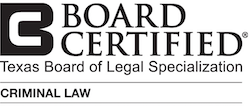The Basics of a Texas DWI Trial
What happens during a Texas DWI Trial?
When facing a Driving While Intoxicated offense in Texas, every case, situation, and scenario is different. Every court, county, Judge, District Attorney, and who shows up for jury duty all vary on a case by case basis. A verdict for a DWI case literally could hinge on who actually shows up for jury duty on any given day the case is set for trial. Often cases are reset because other cases go to trial first for various reasons. Usually courts will set anywhere from four to ten jury trials on any given week, and the defense should be ready to go at every setting. If the case is not reached, the trial will then be reset for another day. The process can be lenghty and time and duration, especially depending on the county and court.
How long will the process take?
The actual trial of your DWI case will vary in length, but most last at most a couple of days, and some can conclude in just one day. It usually depends on whether there is a chemical result or not, and how many witnesses will be called to testify at the trial. It is not within the power of the defense, however, to determine when a trial will go on any given date when it is scheduled. Various resets can be obtained, by the Court, the District Attorney, and even by the Defense (if applicable). If this is the case, a new date will be in the future where the trial may then occur. Trial reset dates can occur for a number of reasons, including ones as simple as a lack of available potential jurors to comprise a proper venire panel for the jury pool. Regardless, the length of a trial depends on a person’s past criminal history, the issues involved, and a great many other factors. All DWI cases are treated differently and the amount of time will vary from the start to the finish of the case.
What will occur at the trial?
► Jury selection
- Jury selection, or voir dire, is the first step in the trial phase of any given case. Contrary to popular belief, jury selection is more of a "de-selection" process, than it is a "selection" process. Each side will get a certain amount of time to ask the potential jurors certain questions, usually related to the type of case it is. Depending on whether the case is a felony or a misdemeanor, each side will get a certain amount of peremptory strikes. In Texas, in a felony case each side gets 10 peremptory strikes, and 3 peremptory strikes if it is a misdemeanor case. Any potential juror can be removed for "cause" by the judge, usually after voir dire is complete, if for some reason they state there is a reason for them being impartial to judge the particular case to be heard. This is, without a doubt, the most important phase of the trial process.
► Pre-Trial Matters
- After the jury is seated for the particular case, most of the time this is when the judge will take up any "Pre-Trial" matters - or what can be termed "housekeeping items" - that need to be dealt with before the actual trial, argument by lawyers, and testimony of witnesses begins. This may include certain items that either attorney may want to have the judge rule whether the jury will be allowed to hear certain testimony once the trial begins - such items could include prior arrests, extraneous offenses, etc.
► Opening Statements
- After the jury is seated and all other "housekeeping matters" are dealt with, each side is allowed to make an opening statement that is supposed to be a roadmap for what each side will present as evidence throughout the duration of the trial. The prosecution always presents their opening statement first. The defense always presents their opening statement after the District Attorney is through, however, the defense can opt to waive opening at this point, and instead elect to do it before they begin to present their case-in-chief, and after the State rests their case. It is important to note, however, that neither side should be allowed to "argue" during this portion of the trial, although this is very commonly violated by both parties.
► State's Case-in-Chief
- In a DWI case in the State of Texas, the "Burden of Proof" rests with the State of Texas, as the Defendant is entitled, by law, of having the privilege of the "Presumption of Innocence." As such, this burden placed on the State forces them to present their "Case-in-Chief" by calling and having their witnesses testify and evidence submitted first.
In a DWI case in Texas, it is not very difficult to predict which witnesses will be called by the State of Texas. Usually the main investigating arresting officer will be called to testify regarding the arrest, and also possibly any other officer that may have something pertinent to testify to if they were at the scene of the arrest (or possibly later at the station). It is always the case that the officer who performed the Standardized Field Sobriety Tests ("SFST's) will be called to testify, if he is not also the initial investigating and arresting officer. Other witnesses they may be called might be witnesses who may testify to what possibly occurred related to the arrest, such as a citizen who made a 911 call to report erratic driving behavior. In addition, if a chemical specimen is obtained, the State will also call the "Breath Test Operator" - in the event that is a different police officer than the one who previously testified if a breath test was obtained. The State will also call a "Technical Supervisor" to testify to the jurors about how the Intoxilyzer 5000 machine works.
If it is a blood test case, other possible witnesses may be called. The State has the option, but is not required, to call to the stand to testify the phlebotomist who drew the blood sample, and also whoever the individual was who transported the blood sample to where it was ultimately tested. They will, however, have to call to the stand as a witness who works for the Department of Public Safety as the individual who actually performed the lab test on the blood sample, as well as the police officer who witnessed the blood sample being obtained.
Likewise, after direct examination is conducted with each witness, the DWI Defense Attorney will also have a chance and opportunity to cross-examine each witness, and hopefully explore and point out any possible holes in the testimony and evidence presented. It is standard procedure that after a witness testifies (for either side) after direct examination, the opposing counsel has the opportunity to question and cross-examine them in an effort to discredit their testimony or challegnge their credibility as a witness.
► Defense Case-in-Chief
- Unlike the "Burden of Proof" that rests with the Prosecution of proving their case "Beyond a Reasonable Doubt", the Defense is under no obligation, whatsoever, to present any evidence, testimony, exhibits, or any argument at all, given the "Presumption of Innocence." However, certain defense testimony can be helpful to the case. Often, it may be helpful to have the Defendant testify in certain circumstances. This usually will be a decision that will be mutually made be both the DWI Defense Attorney and the Defendant based on how the trial has progressed thus far. The defense also has the opportunity, and it can be helpful, to call other individuals who can testify as to how many alcoholic beverages were consumed, ortherwise called "intoxication witnesses." As well, the defense has the opportunity to also utilize the services of an expert, similar to the individual the State of Texas employs, who may offer testimony to discredit how a breath sample was obtained, or a blood test administered.
► Jury Charge/Jury Instruction
- A very important phase of the trial process is the construction of the "Jury Charge" for the jury to consider when they deliberate on the evidence and argument presented. Before closing arguments, the court will usually submit a sample of a version of a jury charge to see if both parties will agree. If they do not, usually a "Jury Charge Conference" will occur, with both sides arguing their theory for why something should, or should not be, included within instructions given to the jury. When the jury instructions are complete and properly ruled on (assuming there is an objection from either party), the judge will outline for the jury the ground rules that they must only consider when making their deliberations on guilt or innocence. After this takes place, the judge will then give and read the jury instructions, which includes the jury charge, before they begin their deliberations, and before closing arguments for each side are made by each attorney.
The judge will explain the legal principles involved with the given case, describe important concepts of law within the jury charge itself, and instruct the jury on what the law is when they make their own findings and conclusions of fact and testimony presented during the course of the trial. The judge usually will usually stress how it is of the utmost concern they abide his instructions of law throughout their deliberation process. Once the judge delivers and instructs the jury on the law, then both attorneys can utilize the jury charge instructions when making closing arguments to argue to the jury what they should consider when they deliberate, essentially comparing the facts of the case to the law of the charge.
► Closing Arguments
- Closing arguments are then made after each side rests their case-in-chief. The State of Texas usually gets to argue both first and last, because they technically have the "Burden of Proof" of establishing "Guilt Beyond a Reasonable Doubt." Closing arguments are supposed to be a summation of the evidence, testimony of the witnesses, and exhibits presented at trial. Usually the District Attorney will offer very little during the first portion of their closing argument, and will utilize the entirety of their "Rebuttal" to argue against whatever the DWI Defense Attorney stated during his closing summation presentation. I believe this to be an unfair tactic, and against how jury trials were first meant to be conducted - but this is usually how it is done nonetheless in every courtroom I have ever seen.
► Jury Deliberation
- Once closing arguments are complete, the jury then retires to the jury room to begin their deliberation process. The first order of business is usually to elect a foreman from its members to facilitate how the deliberations should be conducted and in what manner. In a criminal case, the vote, whether it is "Guilty" or "Not Guilty" - must be unanimous. If it is not, sometimes the presiding judge will send back what is called an "Allen Charge" - that indicates to the jury that if they cannot come to a unanimous decision, a mistrial will be declared, and another jury could likely hear the case instead. The judge will usually only declare a mistrial if the jury is truly deadlocked and if they are all wholly unable to come to the same verdict.
► Acquittal
- If the jury is unanimous and all vote "Not Guilty" - the defendant is thereby acquitted of the charge of Driving While Intoxicated, and the judge will instruct the citizen accused they are then free to go. This is the ultimate goal of any DWI case that is tried in the State of Texas.
► Conviction: Punishment/Sentencing Phase
- If the jury unanimously votes for a "Guilty" verdict, then the punishment, or sentencing phase of the trial begins. Before the trial begins, the defendant has the option to choose for the judge or jury to assess punishment. Based on this election, the sentencing phase will be conducted accordingly. It if often the case where the District Attorney and the DWI Defense Attorney can come to an agreement on punishment, especially in a routine DWI case. If not, an entirely separate sentencing phase of the trial process can occur, and additional witnesses can be called, other testimony heard, etc. Often it is the case where the ultimate punishment sentence could be better than what the District Attorney offered prior to the trial commencing.
What do I do during the trial if I am the accused?
If you are the accused and the defendant at your DWI trial, you will not participate in the trial in most circumstances (unless it is in a periphery role to assist your attorney with jury selection or in helping point out pertinent facts as the testimony unfolds throughout the trial). You may also want to, or be asked by your attorney, to testify during the trial when the defense presents their case-in-chief (while recognizing you have a 5th amendment right to not do so). You will also be required to appear, dress appropriately, and sit at the counsel table as any and all evidence is presented against you. It is important to know that the trial has two parts: 1) Guilt/Innocence Phase; and 2) Possible Sentencing Phase.
Contact Us Now
No matter what the charge is or what is the circumstance, The Law Offices of Carl David Ceder will fight for you to protect your rights, especially and including if it means conducting a trial by jury.You can contact The Law Offices of Carl David Ceder at anytime for assistance at 214.702.CARL(2275) or at 469.2000.DWI(394). You can also e-mail Carl directly, at Carl@CederLaw.com; or to the office for general inquiries at Info@DFWDefenders.com. Phones should be answered 24 hours a day/7 days a week for immediate and prompt assistance. E-mail messages will try to be responded to with 24-48 hours, depending on whether Carl and his team is in trial and/or is busy working on a case for a contested hearing.




















